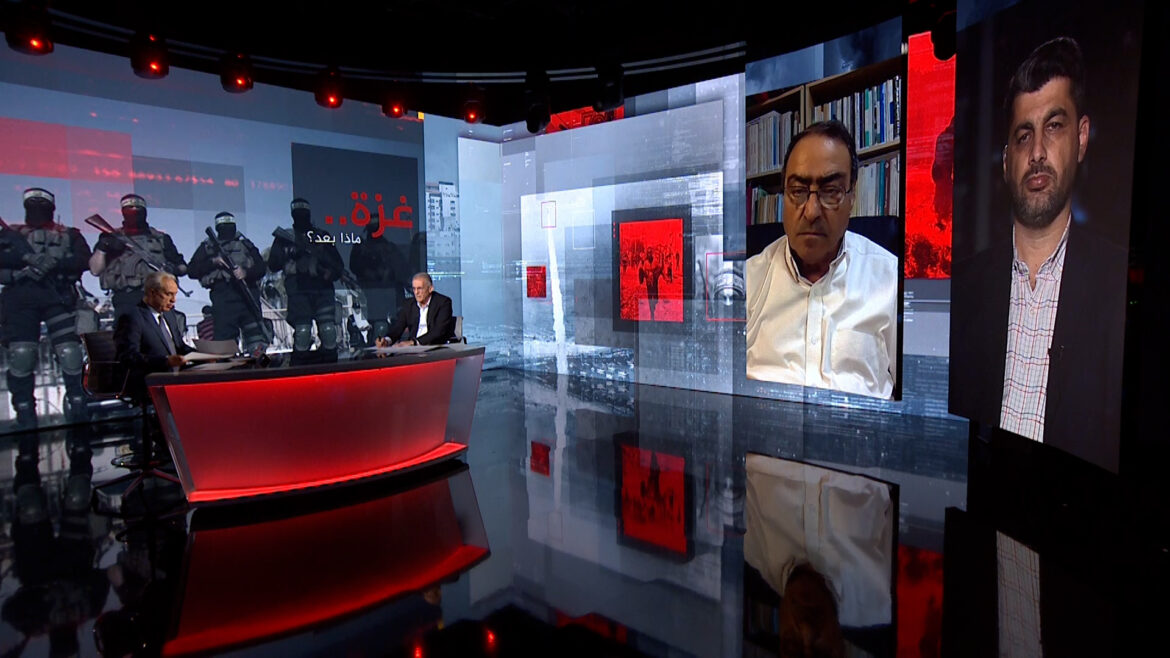Political and military analysts agreed that the speech of the Secretary-General of the Lebanese Hezbollah, Hassan Nasrallah, after the explosions of telecommunications devices in Lebanon was balanced and ambiguous, and they unanimously agreed that it carried local and regional messages and implications.
According to academic and researcher in international relations Dr. Hussam Matar, Nasrallah raised the stakes to their maximum by confirming the continuation of the support front for Gaza, even if the danger of a comprehensive war, stressing that the speech reflects confidence and confirms the party’s absorption of the major blow.
Matar explained – during his interview with the program “Gaza… What’s Next?” – that Nasrallah sent 3 messages to the Israelis, trying to draw the shape of the battle of attrition, which is Israel’s submission to the support fronts or escalation by fire without war, or escalation with a ground maneuver.
He pointed out that Hezbollah is interested in maintaining a margin of maneuver between continuing the support front and avoiding a comprehensive engagement, noting that the party wants to say that it is ready to adapt to the costs it incurs in order to prevent the return of settlers to the north before the Gaza war stops.
According to Matar, there are modifications to Hezbollah’s basic strategy based on adapting to the costs, keeping up with the Israeli escalation, and maintaining a state of balance, amidst its belief that there may be an increase in the response from within the zone of attrition and support.
Regarding the ambiguity in Nasrallah’s speech, the researcher in international relations said that the matter is not new, as it happened previously after Israel bombed the Iranian consulate in Damascus and assassinated the head of the political bureau of the Islamic Resistance Movement (Hamas) Ismail Haniyeh and the prominent military commander in Hezbollah, Fouad Shukr.
He concluded that Israel is slipping into a long-term regional war of attrition after finding itself in a poor strategic position, despite some of its tactical achievements.
New phase
In turn, academic and expert on Israeli affairs Mahmoud Yazbek said that Israeli Defense Minister Yoav Galant acknowledged that Israel is facing a new phase on the northern front, while Nasrallah refused to stop the support front in the north unless the war in the south stops.
Yazbek stressed that Nasrallah’s statements constitute a challenge to Israel, especially since some believed that the latter was going to launch a surprise operation against Hezbollah to expand the scope of the war, but it did not do so at a time when Hezbollah expanded the attack, to confirm that its command and control system was not damaged after the pager bombings.
He expressed his belief that the bombings of communications devices in Lebanon were not planned at the present time, suggesting that they came in response to the Yemeni missile that embarrassed the Israeli political and military leadership, especially in light of the lack of trust between Prime Minister Benjamin Netanyahu and the army leadership.
He concluded that Netanyahu “will not accept a diplomatic solution, does not want a cessation of war, and does not want to leave power.”
Hezbollah’s strategy
For his part, military and strategic expert Brigadier General Elias Hanna believes that Israel was clearer than Nasrallah’s speech in its confirmation that the return of settlers to the north has become a war target, in parallel with its military mobilization and escalation and targeting of the party’s leaders.
Hanna pointed out that Nasrallah’s speech reassured the resistance audience and emphasized the strategic titles of not separating the fronts, and that it does not give Netanyahu an excuse to launch a war he wants.
He pointed out that Israel is mired in a political dilemma, as Netanyahu moves from one stage to another, trying to escape forward, while Hezbollah’s strategy is based on strategic defense and tactical attack based on attrition.



